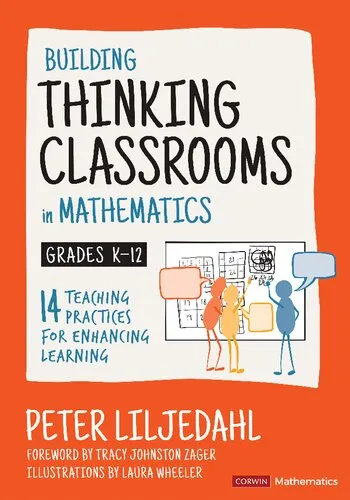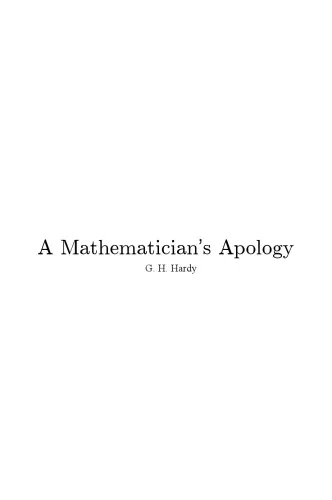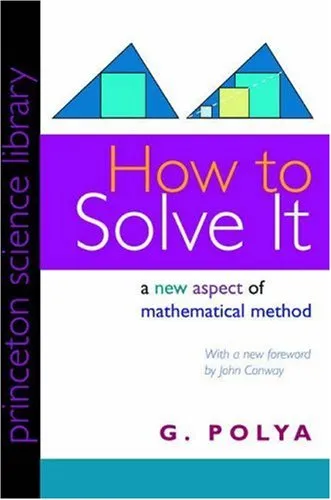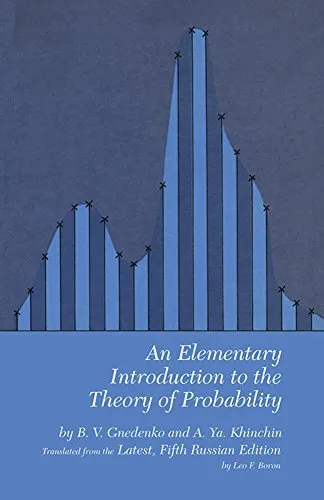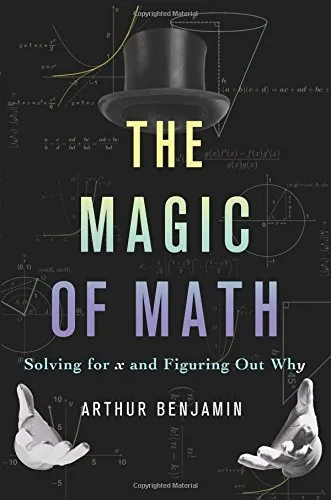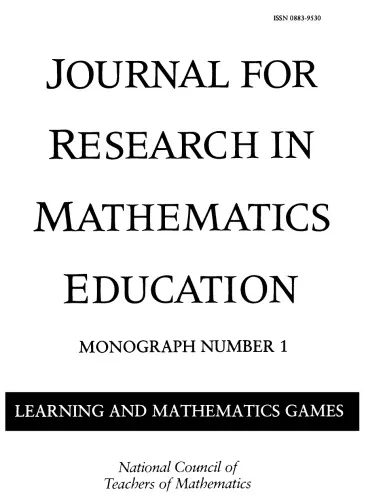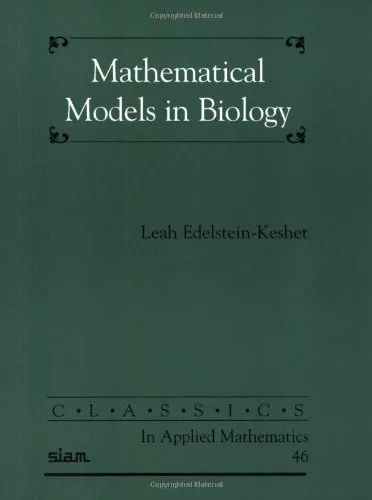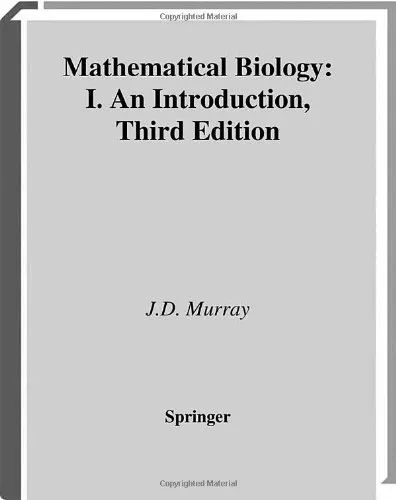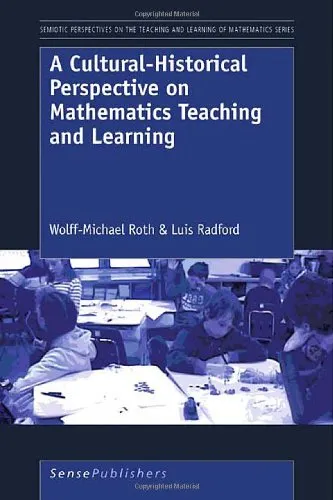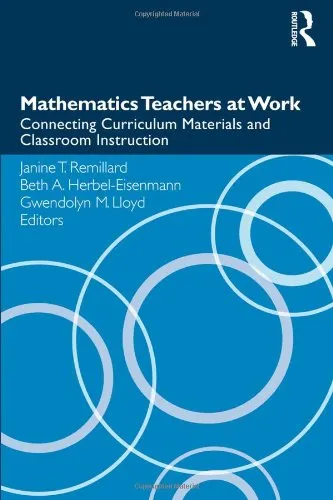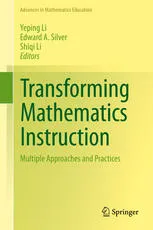Building Thinking Classrooms in Mathematics, Grades K-12: 14 Teaching Practices for Enhancing Learning
5.0
بر اساس نظر کاربران

شما میتونید سوالاتتون در باره کتاب رو از هوش مصنوعیش بعد از ورود بپرسید
هر دانلود یا پرسش از هوش مصنوعی 2 امتیاز لازم دارد، برای بدست آوردن امتیاز رایگان، به صفحه ی راهنمای امتیازات سر بزنید و یک سری کار ارزشمند انجام بدینکتاب های مرتبط:
معرفی کتاب
کتاب "Building Thinking Classrooms in Mathematics, Grades K-12: 14 Teaching Practices for Enhancing Learning" نوشته پیتر لیلیجادال، رویکردی نوآورانه در زمینه آموزش ریاضی ارائه میدهد که توانایی دانشآموزان را در تفکر خلاقانه و مستقل ارتقاء میبخشد. این کتاب حاصل سالها پژوهش و کار عملی در زمینه آموزش ریاضی است و هدف آن معرفی روشهایی ساده، کارآمد و تحولآفرین برای معلمان است تا کلاسهای درسی خلاقانه و فعالتری ایجاد کنند.
خلاصهای از کتاب
این کتاب از 14 عملکرد تدریسی تشکیل شده است که بر اساس تحقیقات گسترده و تجربیات آموزشی نویسنده شکل گرفتهاند. این عملکردها به طور خاص برای تسهیل یادگیری در کلاسهای ریاضی طراحی شدهاند. لیلیجادال بر اهمیت مشارکت فعال دانشآموزان در فرآیند یادگیری تأکید میکند و به معلمان کمک میکند تا رفتارهای یادگیری دانشآموزان را بهبود بخشند.
از اولین صفحات این کتاب، نویسنده چالشهای رایج در آموزش ریاضی را مطرح کرده و پاسخهایی عملی برای آنها ارائه میدهد. هر فصل بر یک جنبه مهم تمرکز دارد، مانند چگونگی ایجاد تعامل سازنده، مدیریت زمان در کلاس یا استفاده از فعالیتهای Problem-Solving برای تقویت تفکر دانشآموزان. تمرکز کتاب بر ایجاد محیطی است که در آن دانشآموزان به طور مستقیم در یادگیری و ایجاد دانش جدید نقش داشته باشند.
نکات کلیدی کتاب
- اهمیت ایجاد محیط یادگیری پویا: به جای قرار دادن دانشآموزان در محیطی منفعل، این کتاب روشهایی برای مشارکت آنها در فرآیند یادگیری ارائه میدهد.
- بهرهگیری از Problem-Solving: فعالیتهایی که دانشآموزان را تشویق میکند تا به جای حفظ کردن، تمرکز خود را بر حل مشکلات بگذارند.
- ایجاد تعاملات دانشآموز به دانشآموز: این کتاب نشان میدهد که چگونه معلمان میتوانند نقش مهمی در افزایش تعامل مثبت بین دانشآموزان داشته باشند.
- رویکردهای اثباتشده آموزشی: اصولی که بر اساس پژوهشهای واقعی شکل گرفتهاند و نه فرضیات نظری.
- استفاده از ابزارهای ساده در کلاس، مانند whiteboards، برای تقویت همکاری و یادگیری دانشآموزان.
نقلقولهای معروف از کتاب
"ساختن دانش یعنی کمک به دانشآموزان تا خودشان مالک یادگیری باشند."
"کلاسهای تفکر فقط با مقابله با عادات یادگیری سنتی ساخته میشوند."
چرا این کتاب مهم است؟
آموزش ریاضی همواره از مسائل پیچیده در سیستمهای آموزشی بوده است. بسیاری از دانشآموزان از این درس احساس ترس یا بیعلاقگی میکنند و معمولاً یادگیری ریاضی به یک فرآیند مکانیکی تبدیل میشود. کتاب "Building Thinking Classrooms" به معلمان نشان میدهد که چگونه میتوانند کلاسهای درسی خود را به محیطی پرجنبوجوش، خلاقانه و تفکرمحور تبدیل کنند. روشهایی که در این کتاب مطرح شدهاند، تنها به بهبود نمرات یا عملکرد امتحانی دانشآموزان محدود نمیشوند، بلکه مهارتهای تفکر عمیق، خلاقیت و گروهی کار کردن را تقویت میکنند.
این کتاب، علاوه بر اینکه راهنمایی کاربردی برای معلمان است، افق تازهای برای تغییر در پارادایم آموزش در کلاسهای درس باز میکند. از طریق روشهای ارائه شده در این کتاب، میتوان دانشآموزانی تربیت کرد که نه تنها در ریاضی بلکه در دیگر جنبههای زندگی نیز از تواناییهای بهتری برخوردار باشند.
Introduction
"Building Thinking Classrooms in Mathematics, Grades K-12: 14 Teaching Practices for Enhancing Learning" by Peter Liljedahl is an essential guide for math educators seeking to revolutionize the way their students learn, think, and engage with mathematics. Drawing on years of research and practical experience, this book provides a roadmap for creating a collaborative and stimulating classroom environment where students actively participate in problem-solving and develop as independent thinkers. By shifting the focus from answer-getting to learning through engagement, the book equips teachers with innovative strategies to foster deep understanding of mathematical concepts.
The education landscape, especially in mathematics, often prioritizes procedural knowledge — tasks and problems are presented merely as puzzles to be solved for correct answers. However, this book challenges that traditional setup by introducing actionable teaching practices that encourage students to think critically, reason logically, and work collaboratively. Whether you are an experienced mathematics educator or new to teaching, this book will serve as a practical, research-based guide to transforming your classroom into a space of inquiry, innovation, and meaningful learning.
Detailed Summary of the Book
The book delves into the core elements of what defines a "thinking classroom" — an environment where students are fully engaged in the learning process by actively working through rich mathematical problems and collaborating with peers. It introduces 14 research-backed teaching practices that promote a shift from teacher-centered instruction to student-centered learning. These practices cover every aspect of classroom culture, from how students work in groups to how tasks are presented and how feedback is given.
Each chapter focuses on a specific practice, such as selecting random groups to break away from pre-assigned hierarchies, using vertical non-permanent surfaces (e.g., whiteboards) to encourage visible thinking, and crafting problems that inspire deep thinking rather than rote recall. What makes this book particularly powerful is its balance between rigorous research and practical implementation. The strategies presented have been tried and tested in classrooms around the world, and real-life examples illustrate their effectiveness.
The book also emphasizes the importance of building a culture of trust and curiosity in the classroom. Small but deliberate changes in how students are grouped, how teachers respond to questions, and how hints are given can significantly impact student engagement and learning outcomes. Ultimately, the book advocates for shifting students' mindsets—from passive learners to active thinkers—and equipping them with the tools to solve complex problems well beyond the classroom.
Key Takeaways
- Foster a culture of active problem-solving and engagement through group collaboration.
- Encourage student thinking by using open-ended questions and tasks designed to provoke inquiry.
- Use vertical surfaces (such as whiteboards) to make thinking visible and improve collaboration.
- Randomly assign groups to break down social barriers and ensure equity.
- Focus on formative assessment strategies that promote growth, instead of summative results.
- Create an environment where mistakes are seen as learning opportunities, not failures.
Famous Quotes from the Book
Here are a few impactful quotes from "Building Thinking Classrooms in Mathematics" that capture its essence:
- “Thinking is the vehicle of learning. Without thinking, students are simply regurgitating information.”
- “To rethink how we teach, we must rethink what we value in the classroom.”
- “Engagement happens when students have a reason to think and a task worthy of their effort.”
- “Mistakes are evidence of learning. They help us move forward.”
Why This Book Matters
Mathematics education is at a crossroads. The traditional model of instruction, focused on procedural learning and answer-getting, is quickly becoming outdated in a world that demands creative and critical problem-solvers. "Building Thinking Classrooms in Mathematics" is not just a book for math educators — it is a call to action to rethink classroom practices to better align with the way students naturally learn and thrive.
The book matters because it provides concrete, research-supported methods for fostering a generation of students who are not afraid to think. It shifts the focus from memorizing algorithms and solving worksheets to engaging with meaningful problems and working collaboratively. By prioritizing student thinking, the strategies outlined in this book help teachers nurture skills such as resilience, curiosity, and a willingness to tackle challenging problems — abilities that are invaluable in life beyond the classroom.
For educators who have long wished to break convention and breathe fresh air into their teaching practice, "Building Thinking Classrooms in Mathematics" offers both inspiration and practical guidance. Its relevance spans all grade levels and educational contexts, making it a must-read for those who are passionate about creating transformative learning experiences.
دانلود رایگان مستقیم
شما میتونید سوالاتتون در باره کتاب رو از هوش مصنوعیش بعد از ورود بپرسید
دسترسی به کتابها از طریق پلتفرمهای قانونی و کتابخانههای عمومی نه تنها از حقوق نویسندگان و ناشران حمایت میکند، بلکه به پایداری فرهنگ کتابخوانی نیز کمک میرساند. پیش از دانلود، لحظهای به بررسی این گزینهها فکر کنید.
این کتاب رو در پلتفرم های دیگه ببینید
WorldCat به شما کمک میکنه تا کتاب ها رو در کتابخانه های سراسر دنیا پیدا کنید
امتیازها، نظرات تخصصی و صحبت ها درباره کتاب را در Goodreads ببینید
کتابهای کمیاب یا دست دوم را در AbeBooks پیدا کنید و بخرید
1570
بازدید5.0
امتیاز0
نظر98%
رضایتنظرات:
5.0
بر اساس 0 نظر کاربران
Questions & Answers
Ask questions about this book or help others by answering
No questions yet. Be the first to ask!
